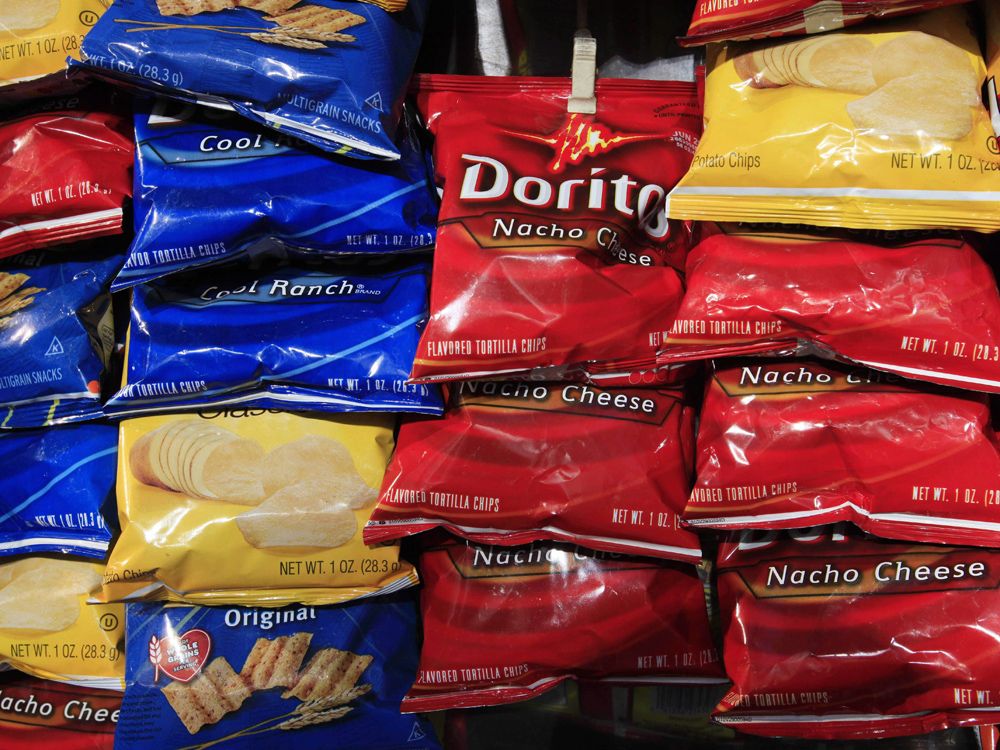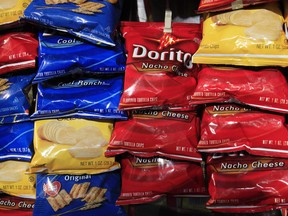Potato chip giant Frito-Lay cuts off Loblaw in dispute over price hikes

Some in the industry say refusals to ship productions are becoming more normal as food inflation surges to a rate not seen in more than a decade

Article content
Global potato-chip behemoth Frito-Lay is refusing to ship its products to Canada’s largest grocery chain, Loblaw Companies Ltd., in a dispute over price hikes.
Advertisement
Story continues below
This advertisement has not loaded yet, but your article continues below.
Article content
Across the food industry, manufacturers have been trying to increase their prices to make up for supply chain delays and ballooning labour and ingredient costs, but retailers have been pushing back. In those price negotiations, the threat to stop shipping products was historically considered to be the “nuclear” option in Canada, especially with a company like Loblaw that controls more than a third of grocery sales. But some in the industry say refusals to ship productions are becoming more normal, as food inflation surges to a rate not seen in more than a decade.
On Friday, La Presse reported that Frito-Lay stopped filling orders last weekend after Loblaw refused to accept price increases. The move to stop shipments, which the Financial Post has confirmed, means Frito-Lay’s extensive roster of snacks — including Doritos, Lays, Cheetos, Smartfood, Munchies and Sun Chips — isn’t flowing to Loblaw’s network of more than 2,400 stores across Canada.
Advertisement
Story continues below
This advertisement has not loaded yet, but your article continues below.
Article content
Loblaw, which also owns No Frills, Shoppers Drug Mart and Valu-mart, said it conducts detailed reviews on price requests from suppliers to make sure what they’re asking for is appropriate.
“This can lead to difficult conversations and, in extreme cases, suppliers don’t ship us products,” Loblaw spokesperson Catherine Thomas said in an email.
The standoff is an escalation in tensions in the Canadian supermarket business, which has been in turmoil during the pandemic over claims that the biggest grocers have used their dominance in the market to squeeze their suppliers.
Loblaw controls roughly 35 per cent of the grocery market in Canada, according to a report from market research firm IBIS World in 2020. (That report did not include Walmart and Costco.) The fact that one snack company would risk such a large portion of the market should underscore the severity of the situation, said Michael Graydon, who leads the manufacturing lobby group Food, Health and Consumer Products of Canada.
Advertisement
Story continues below
This advertisement has not loaded yet, but your article continues below.
Article content
“That should signal to everybody how important this is,” he said, adding that stopping shipments used to be considered a last resort for manufacturers. “It’s becoming more the norm. … The manufacturers have been forced into this. There’s no solution.”
-

Metro uses profit margins to absorb food inflation, resists calls for higher wages
-

Tim Hortons sales have almost bounced back from pandemic lows
-

‘We’ve got trucks sitting for hours on end’: As blockades drive up transport costs, fear of economic toll grows
PepsiCo Foods, which owns and produces Frito-Lay brands at five of its seven Canadian factories, said rising costs of labour, packaging, ingredients and shipping have created “unprecedented pressures” on the business. “We have made adjustments to our prices that are consistent across the marketplace,” spokesperson Sheri Morgan said in an email.
Advertisement
Story continues below
This advertisement has not loaded yet, but your article continues below.
Article content
This week, Statistics Canada’s latest consumer price index report showed that grocery bills jumped by 6.5 per cent in January, the highest year-over-year increase since 2009.
Diane Brisebois, CEO of the Retail Council of Canada, said grocers have been inundated with extra price demands from suppliers — to the point that “there’s a feeling” some could be using high inflation as an excuse to raise prices.
“Those price increases are unprecedented and difficult to justify,” Brisebois said, adding that some price increase requests last month have been three times higher than food inflation levels. “You start wondering. You start saying, ‘This is unreal’.”
In Loblaw’s last earnings update, chief financial officer Richard Dufresne told analysts that his team was working hard to negotiate supplier increase requests down “so that we offer our customers the best value.”
• Email: [email protected] | Twitter: jakeedmiston
Advertisement
Story continues below
This advertisement has not loaded yet, but your article continues below.








